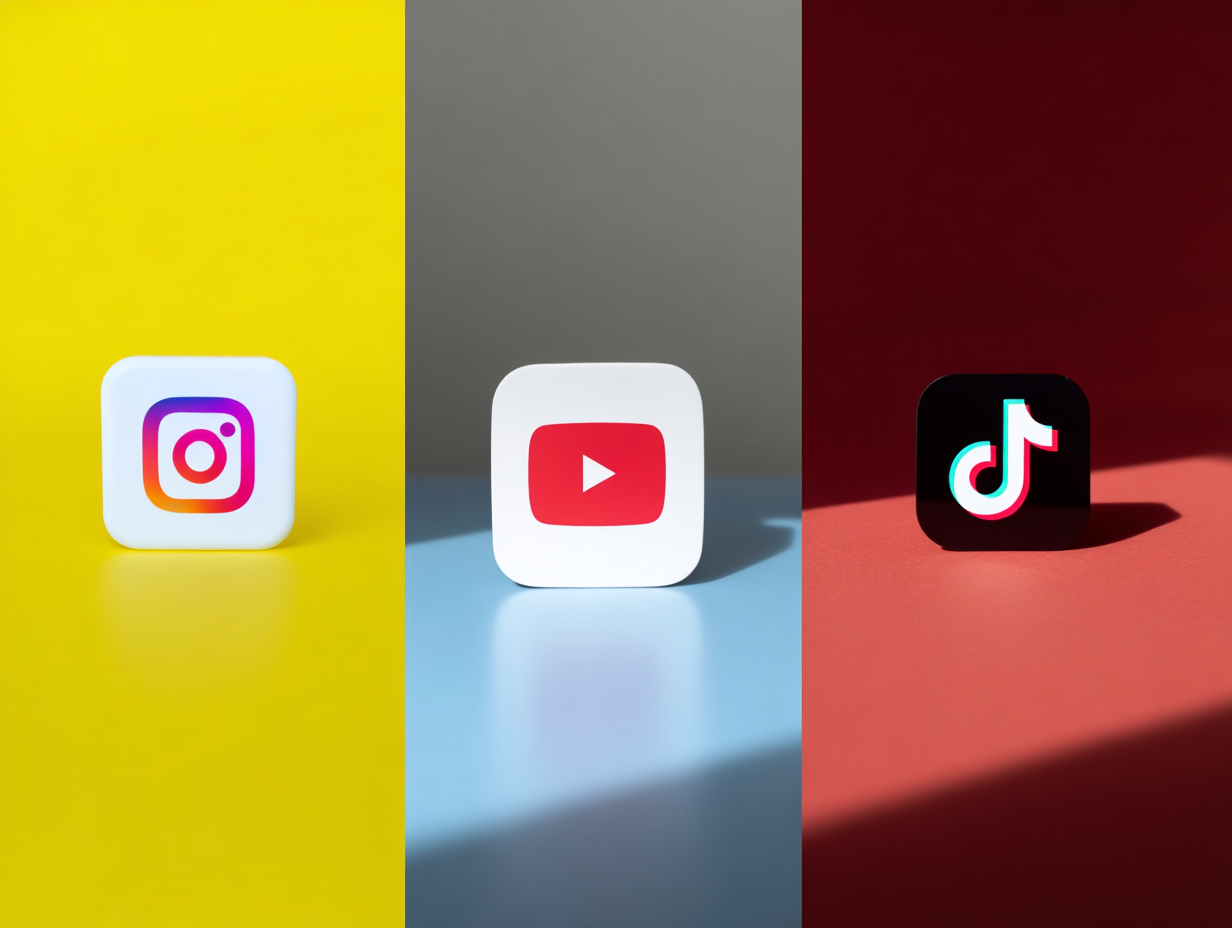Choosing the Right Social Media Platforms and Content Strategy for Your Business

Choosing the Right Social Media Platforms and Content Strategy for Your Business
For businesses navigating the complex social media landscape, selecting the appropriate platforms and content types is critical for maximizing engagement and conversions. This guide provides a data-driven framework tailored to specific business models—B2B, B2C, local services, and e-commerce—while integrating actionable strategies to align with audience behavior and platform strengths. By leveraging long-tail keywords and platform-specific content formats, businesses can optimize their social media presence to attract qualified leads. Savant Marketing specializes in crafting customized social media strategies that drive measurable results, ensuring your efforts align with your unique business objectives.
Understanding Audience and Goal Alignment
Effective social media strategy begins with clarifying your audience demographics and business goals. Brands that skip this foundational step often waste resources on irrelevant platforms or content.
Audience Profiling
Start by defining your ideal customer’s age, gender, location, income level, and interests. For example, a luxury skincare brand targeting women aged 30–50 with disposable income would prioritize Instagram and Pinterest, where visual content thrives, over LinkedIn. Use surveys, competitor analysis, and social listening tools to refine this profile.
Goal Setting
Align social media objectives with broader business goals:
Brand awareness: Focus on reach and follower growth.
Lead generation: Prioritize lead magnets like eBooks or webinars.
Customer retention: Use platforms like Facebook Groups for community building.
For instance, a B2B software company might aim to generate 30% more leads via LinkedIn through whitepaper promotions, while a local bakery could target Instagram to increase foot traffic with geo-tagged posts.
Platform Recommendations by Business Type
B2B Companies
Best Platforms: LinkedIn, Twitter (X), YouTube
Long-Tail Keyword EXAMPLES: “LinkedIn content strategy for B2B lead generation,” “YouTube webinar marketing for SaaS companies”
LinkedIn dominates B2B marketing, with 80% of B2B leads originating from the platform. Share thought leadership articles, case studies, and webinar announcements to position your brand as an industry authority. For example, a cloud services provider could create tutorials on optimizing AWS infrastructure, embedding lead capture forms within video descriptions.
Twitter’s real-time engagement is ideal for participating in industry conversations. Use hashtags like #FinTech or #EdTech to join trending discussions and promote downloadable reports.
B2C Brands
Best Platforms: Instagram, TikTok, Pinterest
Long-Tail Keyword EXAMPLES: “budget gaming laptops for students under $800” “eco-friendly baby toys for toddlers 1-3 years”
Instagram and TikTok excel for visually driven products. A cosmetics company could post 15-second makeup tutorials using trending audio, linking to shoppable tags. Pinterest’s search-driven audience benefits DIY and lifestyle brands—create “How to Style Summer Dresses” pinboards with affiliate links.
Content Ideas:
Behind-the-scenes factory tours to highlight sustainability practices.
User-generated content campaigns encouraging customers to share product photos with branded hashtags.
Local Service Businesses
Best Platforms: Facebook, Google Business Profile, Nextdoor
Long-Tail Keyword EXAMPLES: “emergency HVAC repair services in [City] with 24/7 availability,” “affordable yoga classes for beginners in [Neighborhood]”
Facebook’s localized groups and events features drive community engagement. A HVAC repair company can share seasonal maintenance tips in regional groups, while a restaurant might promote “Taco Tuesday” events with targeted ads to nearby users.
Google Business Profile (GBP) is non-negotiable for local SEO. Post weekly updates about service specials, and respond to reviews promptly to improve local search rankings.
E-Commerce Stores
Best Platforms: Instagram Shopping, TikTok Shop, Pinterest Product Pins
Long-Tail Keywords: “affordable sustainable fashion brands for teens,” “trendy plus-size summer dresses with free returns”
Instagram Shopping allows tagging products in posts and Stories, directly linking to product pages. A jewelry brand could showcase necklaces in lifestyle photos, using captions like “Swipe up to shop this 14k gold pendant”.
TikTok Shop’s native checkout feature is ideal for viral products. Create unboxing videos or partner with micro-influencers to demo products in use, such as “3 Ways to Style Our Reversible Tote”.
Content Strategies Aligned to Business Objectives
Educational Content for Consideration Stages
B2B: Publish LinkedIn articles on “Top 5 CRM Tools for Startups in 2025” with gated PDF versions.
E-Commerce: YouTube tutorials like “How to Choose the Right Running Shoe for Flat Feet” with affiliate links.
Promotional Content for Conversion
Local Services: Facebook carousel ads highlighting “$50 Off First Plumbing Service” with geo-targeting.
B2C: TikTok limited-time offers, such as “24-Hour Flash Sale: 30% Off All Dresses”.
Community-Building for Retention
B2B: Host LinkedIn Live sessions answering common industry questions.
Local: Create a Facebook Group for loyal customers, offering exclusive discounts.
Implementation and Optimization Tools
Use tools like Sprout Social to schedule platform-specific content calendars and track KPIs like engagement rates and click-throughs. For example, a retail brand might discover that Pinterest drives 40% of website traffic but has a lower conversion rate than Instagram, prompting a reallocation of resources.
AI Optimization Tip: Use ChatGPT to generate blog post ideas from customer FAQs, then repurpose them into Instagram carousels. Savant Marketing’s AI search optimization services can help identify high-intent keywords like “affordable social media management for small businesses”.
Conclusion: Partner with Savant Marketing for Tailored Success
Choosing platforms and content types without expertise often leads to missed opportunities. Savant Marketing’s team audits your existing strategy, identifies gaps, and implements data-driven solutions—whether optimizing your Google Business Profile or launching a TikTok Shop campaign. Contact us today to transform your social media into a lead-generation engine.
Kenneth Rodriguez
Author